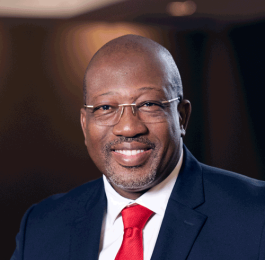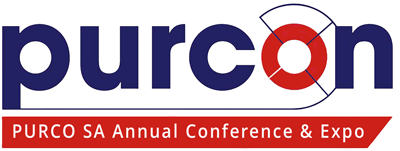
Prof Nana Poku
Speaker
Professor Nana Poku
Vice-Chancellor and Principal of the University of KwaZulu-Natal
Professor Nana Poku is the Vice-Chancellor and Principal of the University of KwaZulu-Natal (UKZN) with effect from 24th June 2019. He previously served as the Deputy Vice-Chancellor of the College of Law and Management Studies at UKZN, and as Acting Vice-Chancellor and Principal from 1 October 2018.
He was appointed Chair of the Frontline AIDS Board of Trustees from June 2021. He holds a PhD in International Political Economy and has a distinguished career in research on the political economy of health and HIV and AIDS in sub-Saharan Africa and substantial managerial experience in international organizations.
Professor Poku also brings with him a wealth of experience in Higher Education. He has served as Professor of African Politics at the University of Bradford in the United Kingdom and was subsequently appointed Dean for the School of Social and International Studies and later Pro-Vice-Chancellor for Research. He returned to Africa to lead the African Union preparation for the Sustainable Development Goals; and within UKZN, served as the Executive Director of the Health Economics and AIDS Research Institute (HEARD).
He took up his post as Deputy Vice Chancellor of the College of Law and Management Studies at UKZN in 2017. Alongside his managerial and academic roles, Professor Poku has maintained his external development roles in Africa. In 2007, he was an expert witness to United States Congressional Committee on the President’s Emergency Plan for AIDS Relief (PEPFAR). During 2006-7, he was a member of the Expert Advisory Group to the EU Africa Governance Project; and from 2007 to 2010, he served as a Special Advisor to British Government on Africa. Since 2007, Professor Poku has been senior advisor on HIV and AIDS policies within Poverty Reduction Strategy Papers for the governments of Botswana, Ghana, Mozambique, Malawi, Namibia, Kenya and Zambia, and over the past two decades has worked in a senior capacity with the World Health Organisation, World Bank, United Nations Development Programme, UNAIDS, International Labour Organisation, European Union, African Union, African Development Bank, Southern African Development Community, and various national development agencies.
The Vice-Chancellor and Principal is passionate about research. His early research examined how Africa responded to the socio-political and economic challenges posed by the HIV and AIDS epidemic. The findings have been significant in shaping global policy and led to Professor Poku being appointed by then-UN Secretary-General Kofi Annan to lead the Commission on HIV and AIDS and Governance in Africa. Professor Poku also directed a World Bank programme of operational research (the Treatment Acceleration Programme) to test the feasibility of strengthening and scaling up on-going HIV and AIDS treatment initiatives in Africa. The outcome of the programme was significant in influencing the World Health Organisation’s global policy framework on the provision of complex AIDS-related medication in resource-poor settings.
Professor Poku has a wide array of published work on globalisation and security, the HIV and AIDS epidemic in Africa, global health, governance, migration and human security. He has authored/edited/co-authored numerous books and is widely published in peer-reviewed, internationally recognised journals, including Lancet, British Medical Journal, International Affairs, Review of International Studies, International Relations, and Third World Quarterly.
Professor Poku was educated in the United Kingdom. He received his BA (Hons) in Politics and Economics from the University of Nottingham, his MA in International Political Economy was from Nottingham Trent University and subsequent MSc in Third World Economics and Development from Coventry University. He read for his PhD in International Political Economy at Nottingham Trent University.
Universities at a Crossroads: “Adaptability and Renewal in a Time of Reckoning”
By Professor Nana K Poku, Vice Chancellor and Principal, University of Kwa-Zulu Natal.
My keynote address delivered at the PURCO SA Annual Conference and Expo on 1st October 2025, explores the urgent need for universities to redefine their relevance in a rapidly changing global context. It emphasises the critical challenges and opportunities facing higher education institutions today, urging leaders to respond with vision, courage, and ethical commitment to the public good.
Introduction: The Moment of Inflection for Universities
I open by recognizing higher education leaders as visionaries responsible for guiding universities through profound change. I highlight that the traditional foundations of public universities are being questioned worldwide, including in South Africa, with the central question: Are our institutions truly relevant to the world we serve? This relevance is no longer assured by prestige or tradition alone but must be actively demonstrated through innovation and social purpose.
The address identifies three interconnected forces reshaping the sector:
1. Competition: Proliferation of Service Providers
The era when traditional universities held exclusive dominance is over. A dynamic ecosystem of private providers—including corporate academies, ed-tech platforms, and for-profit colleges—now competes for learners globally. Examples such as BYJU’S in India and Google’s Career Certificates in the US illustrate how these providers offer personalized, market-aligned learning pathways that challenge universities to rethink their value proposition. Universities must balance agility and responsiveness with their core missions of intellectual depth, critical inquiry, and civic responsibility. Retreating into insularity risks irrelevance, while uncritical market chasing risks eroding academic rigor. Instead, strategic partnerships with employers and ed-tech innovators, grounded in ethical frameworks and social responsibility, offer a path to lead educational transformation that serves the public interest.
2. Expectation: Student Choice
Today’s learners exercise unprecedented agency, questioning the value and relevance of their education. They demand transparency, flexibility, and personalized learning options such as online study and micro-credentials. The Open University’s employer-linked micro-credentials exemplify this trend. However, this empowerment introduces a paradox: as education fragments into transactional units, the holistic university experience—the intellectual community and shared growth—may be diminished. Furthermore, the digital divide threatens equitable access. Universities must embrace personalized learning while safeguarding inclusive intellectual communities, addressing financial, technological, and social barriers to ensure all students can thrive.
3. Constraints: Shifting Funding Models
The financial landscape of higher education is undergoing a fundamental transformation. Stable public funding is replaced by competitive grants, performance-based funding, private partnerships, and reliance on tuition and philanthropy. This shift often marginalizes disciplines like philosophy, history, and the arts, which are central to the university’s civic mission and ethical reflection. Professor Poku stresses the existential nature of this challenge, urging universities to articulate the indispensable societal contributions of all disciplines, including those less directly linked to market returns. The future university must decide whether to be merely responsive to market forces or to actively shape them, championing knowledge as a public good essential for democracy and social cohesion.
Conclusion: A Call to Courage, Clarity, and Collective Resolve
The address concludes with a call for higher education leaders to actively shape the future of universities with bold imagination and unwavering commitment to their public mission. It urges reaffirming universities as sanctuaries of critical inquiry, intellectual freedom, and social progress. The collective responsibility is to defend principles of access, inclusion, and the public good, ensuring universities remain beacons of hope and transformation in the face of competition and uncertainty. The world is watching, and history will judge how fiercely and creatively this promise is upheld.
THANK YOU
